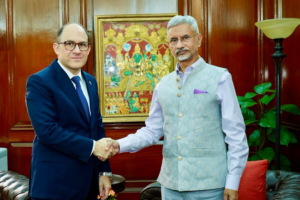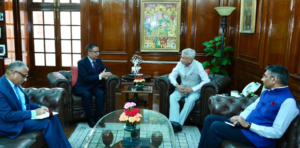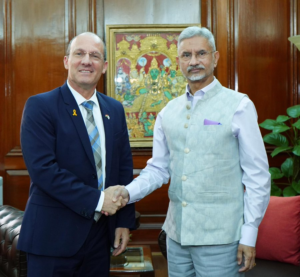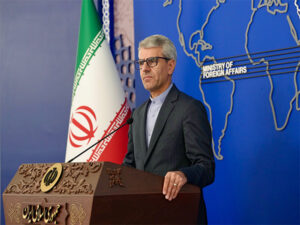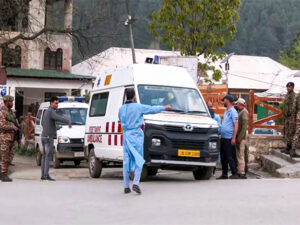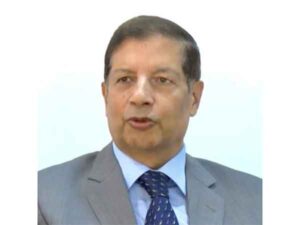Japan vows further support for Ukraine’s reconstruction
Tokyo [Japan], February 20 (ANI): Japanese Prime Minister Fumio Kishida affirmed Japan’s firm commitment to aid war-torn Ukraine’s restoration during the Japan-Ukraine Conference in Tokyo, reported by Kyodo News.
Prime Minister Kishida pledged continued support, leveraging Japan’s expertise in recovery efforts from earthquakes to assist Ukraine’s rebuilding process.
Japan announced a grant aid of 15.8 billion yen ($105 million) to Ukraine, aimed at addressing landmine and unexploded ordnance threats, and restoring electricity and energy infrastructure, as per Kyodo News.
The conference, held ahead of the second anniversary of Russia’s invasion of Ukraine, highlighted Japan’s determination to extend financial and business support to Ukraine, given its inability to offer military assistance like Western nations.
According to Kyodo News, during the conference, Prime Minister Kishida and Ukrainian Prime Minister Denys Shmyhal oversaw the signing of over 50 memorandums of cooperation between the public and private sectors of both countries.
These agreements encompassed diverse fields including infrastructure rebuilding, demining, agricultural expansion, and governance enhancement.
Prime Minister Kishida emphasized Japan’s unique contribution to Ukraine’s reconstruction efforts, citing the upcoming treaty to eliminate double taxation and negotiation to revise an investment pact.
Additionally, Japan will establish an office of the Japan External Trade Organization in Kyiv to bolster bilateral business ties.
In his keynote speech, Kishida said the two nations will conclude a treaty to eliminate double taxation and start negotiations to revise an investment pact to enable Japanese firms to join reconstruction projects in Ukraine.
He emphasized that Japan, which has often suffered from powerful earthquakes and other natural disasters, can make its “unique contribution” to Ukraine.
Kishida added his government will establish an office of the Japan External Trade Organization in Kyiv to bolster business ties between the two countries, with the Foreign Ministry saying Tokyo has eased its travel restrictions to boost investment in Ukraine
Ukrainian President Volodymyr Zelenskyy’s scheduled video message was canceled, but Prime Minister Shmyhal expressed gratitude for Japan’s cooperation. Both leaders reaffirmed the importance of intensifying sanctions against Russia to deter Moscow’s military activities.
In his address earlier on Monday, Shmyhal called on Kishida, who traveled to Ukraine in March 2023 for talks with Zelenskyy before hosting the Group of Seven summit in May in Hiroshima, to revisit Ukraine.
Kishida and Shmyhal reaffirmed in a joint communique that intensifying sanctions against Russia is a crucial and effective measure to deter Moscow’s military activities.
The conference involving about 300 government and corporate officials from Japan and Ukraine was held as concern is mounting that support for Kyiv from Western nations may wane, particularly with Russia seemingly committed to a war of attrition.
Concerns over potential waning support from Western nations, including delays in aid packages from the United States, underscored the urgency of international assistance to Ukraine. Japan, restricted by its war-renouncing Constitution from providing military equipment, emphasized financial aid and economic cooperation with Ukraine.
In Hiroshima’s G7 summit, Japan and other leaders affirmed unwavering support for Ukraine, recognizing the need for sustained assistance amid reconstruction challenges. As Ukraine estimates $486 billion for rebuilding over the next decade, Japanese firms eye opportunities to contribute to Ukraine’s recovery efforts.
While Japanese citizens are advised against visiting Ukraine, calls for relaxing travel advisories to enable participation in reconstruction projects are gaining momentum, signaling Japan’s commitment to aiding Ukraine’s journey towards recovery.
This conference solidifies Japan’s role as a steadfast partner in Ukraine’s reconstruction, reflecting a shared commitment to peace and stability in the region.

